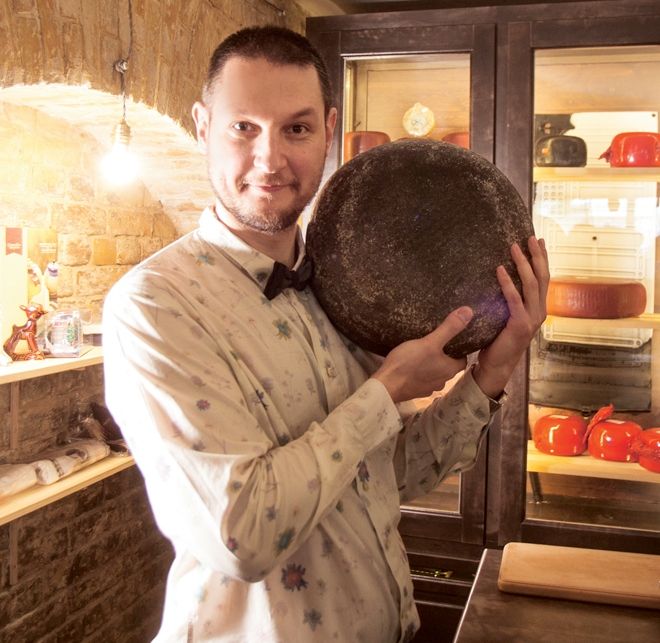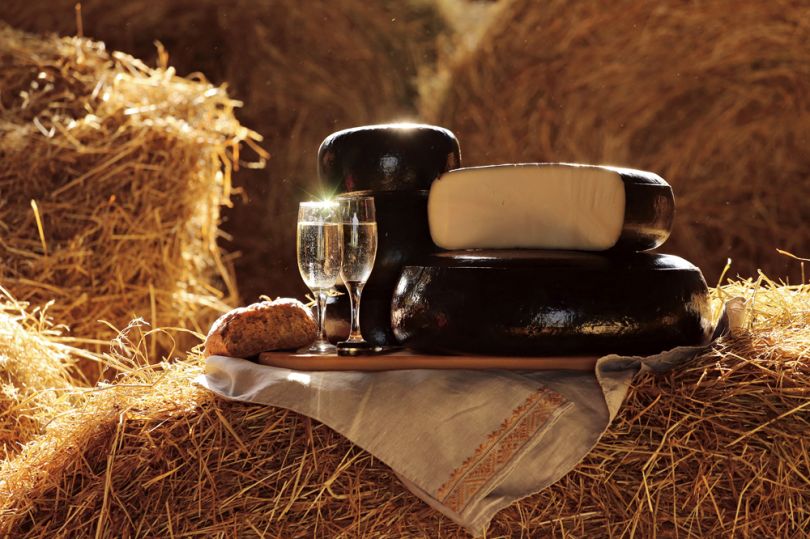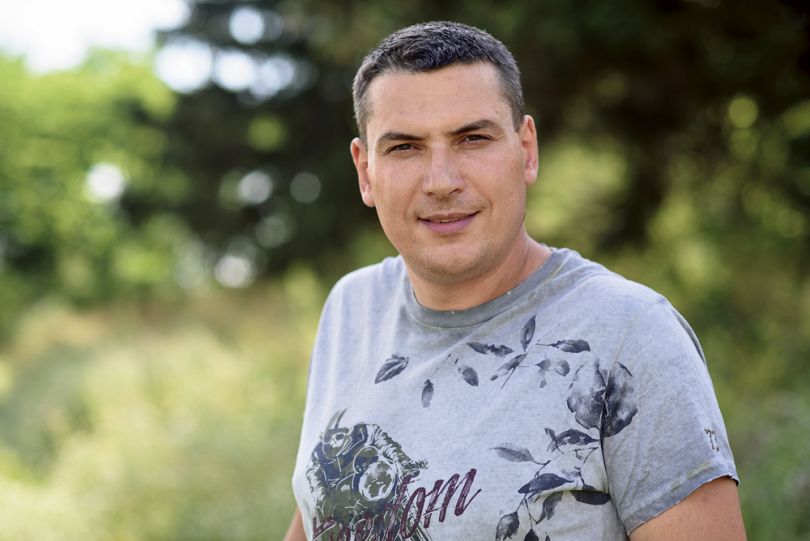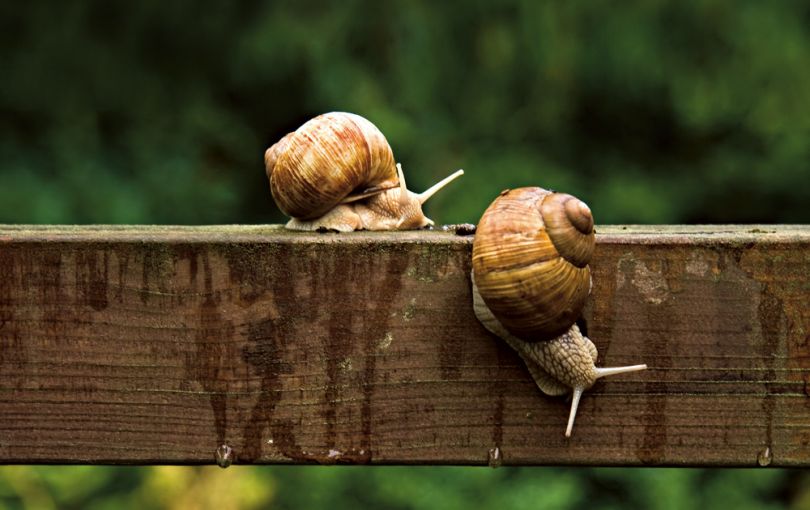Cheese-making school
Taras Lozhenko was a professional athlete, a nationally-ranked swimmer, an artist and designer, owner of an advertising agency. Also, he is a goat breeder and cheesemaker. Home-made farmer's cheeses are the staple of his Dooobra Ferma (Goood Farm).
- Taras, let us start by asking you if your farming story is typical of Ukraine.
I do not think it is unique. It is typical of people who live in rural areas to be very archaic and often reluctant to experiment and change. While people from big cities, on the contrary, see their future in the village. They are more attracted by the nature, healthy food, a certain lifestyle and a more balanced rhythm.
I laid my eyes on farming because of my father. He was just going into agriculture business, so I had to design a brand for him and organize the delivery. In a while, my help to the father developed into this business of cheese-making and goat breeding.
– Recipe is a very important point. I know that you are constantly learning from farmers in France, Greece and the Netherlands. But still, should the best cheese, in your understanding, be similar to French or Dutch? Or is it a purely Ukrainian product with a Ukrainian taste profile we are talking about?
YA Ukrainian taste profile, spot on. When we started to produce cheese according to French recipes, we saw that people in Ukraine did not understand it. It is not because of our ignorance. Traditionally, cheese was made in mountainous countries and regions because animals – sheep, goats and cows – go to the mountains in the spring and do not return until the autumn. They give milk the entire summer.
Cheese is just a way of preserving milk. Central Ukraine does not have deep-rooted traditions of cheese-making. We were lucky. We have cows at hand all summer long, and there is always milk. We have long-running traditions of making cottage cheese, sour cream, curdled milk and butter. And that's good. The whole of Europe is envious of us.
– So, are you in fact trying to make Ukrainian cheese as such and accustom customers to it?
Yes, Ukrainians appreciate a fresh and delicate taste. For example, we are now doing several types of Georgian cheese for Goodwine. They are traditionally very salty. We have significantly reduced the amount of salt. And now chechil and suluguni we make are very popular because they are delicious. Therefore, our task is to study the best world traditions and adapt them to the Ukrainian taste and our traditions.
– It prompts the question about a new Ukrainian cheese-making school. How do you see its prospects?
That is a good question. In my opinion, the creation of a national cheese-making school would unify cheesemakers. A school would require resources and people interested in learning. At the moment, Ukrainian cheesemakers are scattered. I dream of creating a cooperative of cheesemakers. Then we would be able to protect ourselves in the market. This takes a lot of time. In France and the Netherlands, such organizations are very powerful. We have a lot of young cheesemakers nowadays. It is wonderful. However, there is one more burning issue.
The state is ready to allocate money to support small agricultural businesses and issue inexpensive loans. However, it must help and educate because people do not really know how to do business. We are still learning.
In Europe, you cannot buy a farm, if you have not studied for a year at school. If you do not have a special education, you will simply not be allowed to do this. You study for a year – six months of lectures, six months of practice – and then you begin to improve your skills. These are public schools. We are in contact with a teacher from the Bavarian cheese-making school to study the system.
When we started working, we realized that in Ukraine no-one knows farmer's cheese-making. In Soviet times, all private small farms were destroyed. Only a few survived high in the Carpathian Mountains. Even seven years ago there was no-one to learn from. What can we say, even our scientists are traditionally oriented towards large-scale production, factories. But farmers use completely different technologies. Absolutely. Both use milk and enzymes to produce cheese, but their approaches are completely different.
Escargots make a trend in Ukraine
Several years ago, there were few people in snail farming. Although it is still a niche market, their production in Ukraine has increased 116 times over the recent years. One of the first to farm snails was Dmytro Butenko, the founder of Eco Ulitka (Eco Escargot).
- Dmytro, how did you decide to get involved in snail farming, a rare type of business in Ukraine?
The idea to open a farm crossed my mind by chance. I bought a business with a garden in Vinnytsya Region.
There were many snails. In 2008, I saw a cooked snail in a store and I got hooked on the idea. I started searching for information, reading old PhD papers written by Soviet professors. It took me around half a year to process this information.
– Did you learn how to do this on your own?
I had a general idea what products are compatible with them, how to cook and at what temperature. I was trying to understand how make it an edible and finished product. Snails have never been a local food favorite. We were monitoring the quality of our product to make sure there is no sand and it does not smell like a swamp. Before we learnt how to eliminate these problems, I had not mentioned my products anywhere. Sampling was limited to my family and friends.
– Do you focus namely on the domestic market? As far as I know, Ukrainian snail farmers are predominantly export-oriented.
I can tell you why. They sell farmers' snails which can only be grown at a farm. These are snails brought from Morocco or Spain. European snails have a survival rate of 90%, they are easy to farm but they cannot survive in our winter and frosts. Therefore, they require special care, they should be winterized and stored. However, it is very difficult to adapt our local grapevine snails I'm working with to farm living. There are very many fine aspects of growing and increasing their number. These are two different kinds of snails. Our farmers are working for the European market because we do not have processing capacities here. Snail farms have been operating in Europe for over 20 years now. Businesses which produce snail cream, soap and even cough syrups for bronchial problems in addition to canned products have emerged over this time. They have high turnovers and an advanced culture of consumption. There is demand for these products. That is why our farmers set their sights on Europe.
Our farmers are working for the European market because we do not have processing capacities here. Snail farms have been operating in Europe for over 20 years now. Businesses which produce snail cream, soap and even cough syrups for bronchial problems in addition to canned products have emerged over this time. They have high turnovers and an advanced culture of consumption. There is demand for these products. That is why our farmers set their sights on Europe.
However, three or four years ago we analyzed sales statistics for Europe. Growth there had stopped. In the meantime, snails are in trend in Ukraine. Consumption has not been growing fast enough, but there are new farms. I can say that a new business activity is being born.
As for European snails, we have opened our own production of them. We will also sell them abroad. Currently, we grow 30 t of European snails, of which 10 t we reserve for processing and 20 t we can sell our foreign partners.
– Does it mean that you are planning to set up a full technological chain for snail processing?
Yes, food consumption is our driving force for various reasons. Our country does not have a proper legislative framework, there are no factories to work with this raw stuff. But we can make delicious escargots. We are ready to sell it in France and Italy. I think we have a quality product and excellent opportunities to present it to European customers.
We have already taken part in a number of fairs and festivals. We have agreements with processing facilities in Italy and Lithuania. We know where we can offer our product. We are moving exactly in this direction. When the workshop is finished, in a year, I hope, we will be able to send our first orders to Italy. We are expecting proposals from China and Asia. We did the homework in this area too. We are expanding our horizons.
Interviewed by Olga Babchuk.









